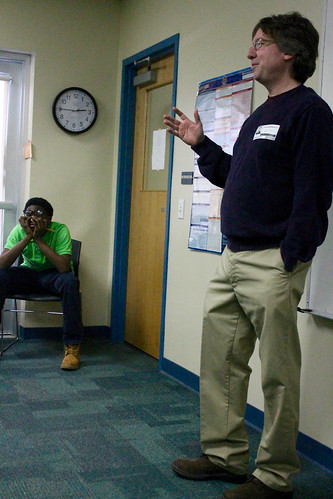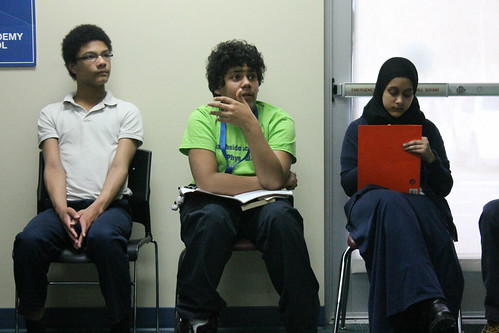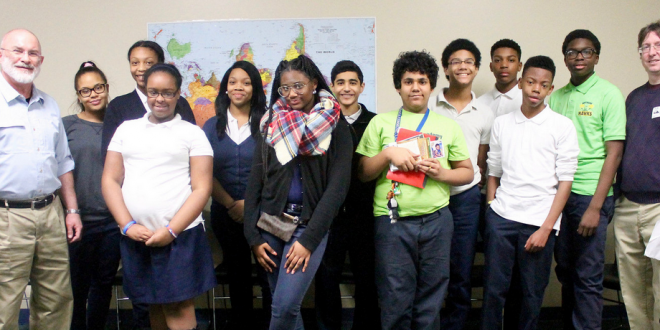Southside Academy Charter School students ponder ethical dilemmas

Professor Ben Bradley posed a series of seemingly straightforward questions to a group of seventh and eighth graders about sports Friday, Feb. 26. Is it OK to take performance-enhancing drugs? Should men and women compete against each other? Should the winning team always be considered the better team?
At first, the Southside Academy Charter School students seemed absolute in their answers: no, no, no. But when Bradley, a philosophy professor at Syracuse University, asked the students to explain their answers, they were less sure. One student talked about the time his football team lost, even though they were the better team, because they weren’t focused.
Anton Ninno came up with the idea for the Philosophy Project at Southside Academy after reading a book, “Socrates Café,” where the author traveled around the United States starting philosophical discussions in coffee shops and libraries. The project launched in 2010 and six years later, graduate students (and sometimes a professor) from SU’s department of philosophy come to Southside Academy once a week to teach a class on a specific topic.
Past sessions have covered the definition of a friend, whether it’s ever OK to lie or kill someone and other ethical issues.
Bradley, who serves as the chair of the philosophy department, introduced his philosophy of sport class on the SU campus this semester, and brought a taste of the class to Southside Academy’s middle school philosophy students.

“Being really good at being able to guess heads or tails is not why people watch football,” Bradley said, when discussing why some have issues with the NFL’s overtime rules. “It’s important to think about why we care about sports.”
The program not only exposes the students to philosophy and the Socratic Method, but also simulates a college-style seminar class.
“We offer them the opportunity and then they decide whether they want to take advantage of it,” Ninno said. “We say, for example, ‘we’re going to bring a college professor and doctoral students who teach college students, and this is what it’s going to look like.’”
Seventh- and eighth-grade teachers recommend which students they think would contribute to and benefit from participating in the course the most, and the class of 12 meets on Friday afternoons for an hour.
During the philosophy of sport session, the group did not come to many definitive conclusions, but that wasn’t the point. Ninno, who graduated with a degree in philosophy from SU in 1973, said he hopes that the discussions at least spark an interest in some of the students, and that the program at Southside Academy can inspire similar ones at other schools.
“Perhaps a social studies teacher or an English teacher could read up on this subject and do this kind of class without too much trouble,” he said. “I just think it would be wonderful if more schools did this kind of thing.”
— Story and photos by Ashley McBride, The Stand Staff reporter
 The Stand
The Stand


